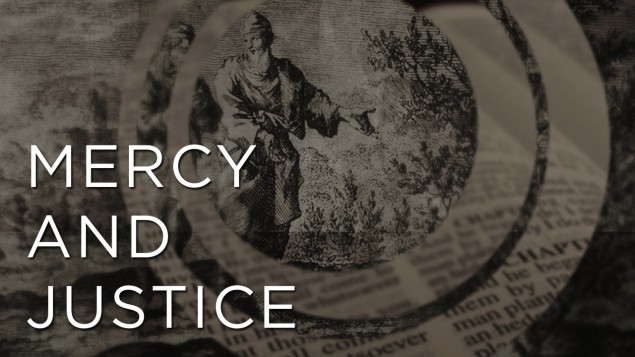Crime needs to be punished. There is no doubt about that. Punishment for crime is a necessary part of maintaining a just society, preserving order and peace, and promoting life and happiness. Citizens need to know that there are consequences for breaking the law and to be motivated to do what is right for the good of society.
While punishment for crime is necessary, it also needs to be dispensed justly. Overly punitive measures can demoralize offenders and their families and cause them to lose faith in the criminal justice system.
Take mandatory minimum sentencing for drug offenses, for instance. This sentencing began in the 1980’s as a way for state officials to get “tough on crime.” However, it stripped judges of the ability to use discretion in sentencing drug offenders, resulting in scores of people spending far too many years behind bars for relatively minor drug offenses. This “tough on crime” mentality led to a massive overcrowding of our nation’s prisons, more costs to taxpayers, and increased recidivism.
When thinking about punishing offenders for their crimes, we must remember that 95 percent of those who enter prison will return to the community at some point. In other words, “today’s prisoners are tomorrow’s neighbors.”[i]
This reality should cause us to approach how we administer justice with a more balanced and humane perspective. We ought to be thinking with the end in mind: How best can we prepare a person for reentry at the moment of sentencing? What obstacles does a person need to overcome personally? Who does this person need to make amends with before he is released? What will keep this person from recidivating?
It is important that we remember that those who have committed crimes are people, and all people have inherent dignity and worth. If we allow ourselves to view a person as less than human, we are tempted to write him off and to refuse to engage in the hard work of helping him to overcome root issues that keep him from thriving. However, if we see those who commit offenses as humans worthy of the same dignity as any other human being, we will be more likely to see their possibility for redemption.
When we examine our own lives – our failings and the consequences of bad choices that we’ve made – we can learn to relate to offenders and have compassion on them. It should show us that just as we have been shown mercy at various points in our lives and given the chance to move forward, criminal offenders likewise could benefit from being shown mercy. This does not mean that we should forgo punishing justly according to the nature of one’s offense, but it should temper the manner in which we approach punishing crime and cause us to reexamine the ultimate outcomes we are trying to achieve. This paradigm shift should cause us to realize that the offender’s restoration to one’s victims, family, and community, is a better aim for our criminal justice system than merely punishment.
A better approach seems to be one that recognizes that crimes are fundamentally committed against other people, not simply the state. The harm one person inflicts upon another needs to be addressed and repaired as best as possible. Simply locking a person away and having the state deal with him is not going to address the needs of the victim, the offender, or the community. A deeper reconciliation is needed.
A criminal justice system that reflects this restorative approach would be far more likely to cultivate a humane and just society.
[i] Quote taken from a video produced by Hank and John Green with the help of Visual.ly, Kurzgesagt, and the Prison Policy Initiative. The video was posted in an article titled, “Exactly Where America’s Prison System Went Wrong, in One Simple Video,” written by Laura Dimon for PolicyMic on April 11, 2014.

